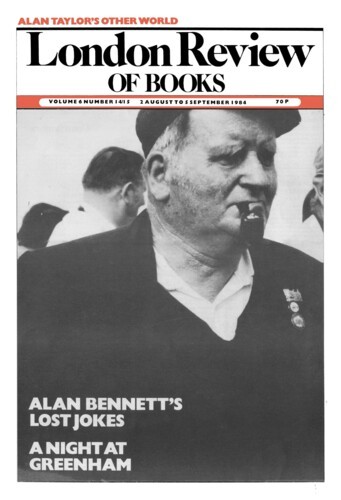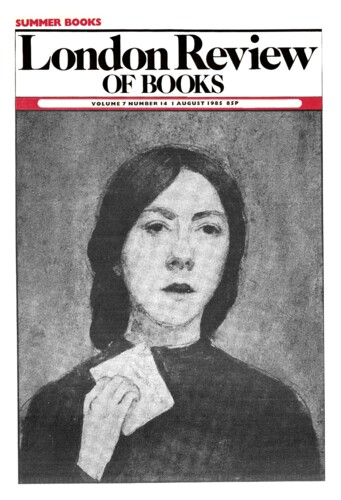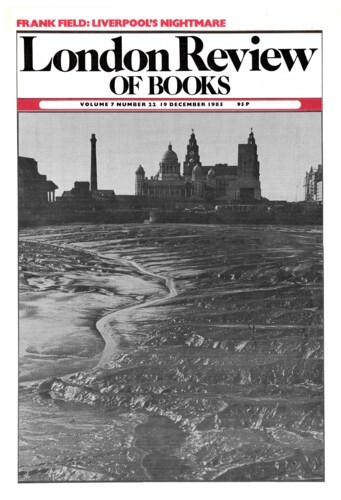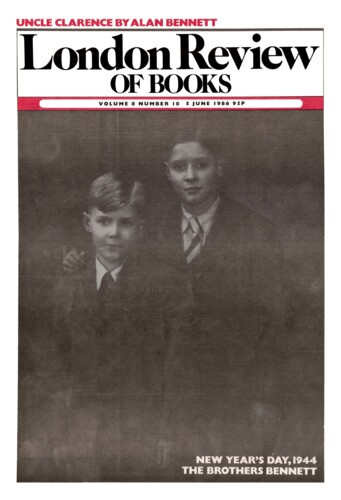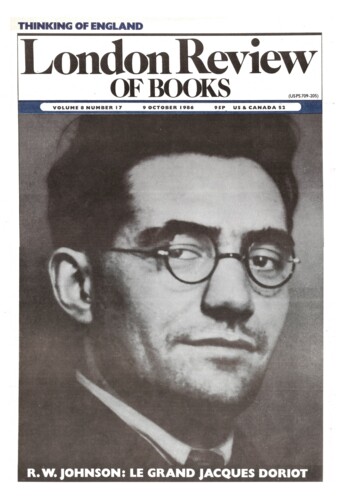The Boss paused twice for reflection in the course of his last Wembley concert, on 6 July – twice in three and a half hours of an otherwise relentless exuberance. We all fell silent, gazing at the tiny figure holding the microphone, or at his huge video doubles, projected onto screens standing to either side of the forty-foot-high speakers. The sound, travelling across the arena, lagged fractionally behind the image, whose lips moved out of synch with the words we heard. The single, central figure, necessarily remote, could not quite sustain the illusion of intimate speech. But it was there if you listened with eyes closed. Personal sincerity, electronically amplified and directed at seventy thousand other persons, is hard to pull off, and hard to take whether pulled off or not. Bruce Springsteen, however, managed not to sound nauseatingly heartfelt. His voice lacks pretension, disclaims rhetoric and self-regard; he is, apparently, without design.
The Boss paused twice for reflection in the course of his last Wembley concert, on 6 July – twice in three and a half hours of an otherwise relentless exuberance. We all fell silent, gazing...
